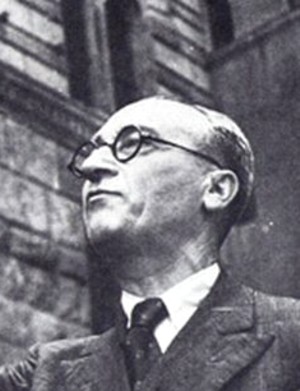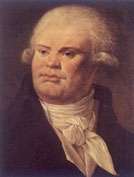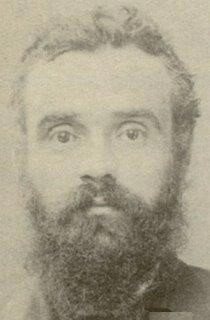Da

Damen, Onorato (1893 -1979)
Italian Left communist
See Onorato Damen Archive, including biography.
Dahlem, Fritz (1892–) .
Son of railway worker, worked as stable lad. In SPD (Sozialistische Partei Deutschlands, Social-Democratic Party) in 1913. Chairman of Socialist Youth in Cologne in 1914. Conscripted into army during 1914–18, joined USPD in 1917, member of soldiers’ council in 1918. Worked as journalist in Cologne, member of USPD Left, joined VKDP (Vereinigte Kommunistische Partei Deutschlands/United Communist Party of Germany) in 1920, represented Central Rhineland on Central Committee. Supported Levi, openly backed his positions in Party press without being punished, but then broke with him. In France during July–October 1922. At beginning of 1923 was secretary [Obersekretär ] for entire Rhineland. Deported by French occupying authorities, then worked in Party press and organisation department. Member of Politbureau in 1929, deputy during 1928–33. Compromised with oppositions to Ulbricht and Pieck at head of Party. Emigrated in 1933, fought in International Brigades in Spain during 1936–9, interned in France in 1939, handed over to German government in September 1941, held for eight months in Gestapo headquarters cell, then in Mauthausen until 1945. Reached Moscow and then Germany with Pieck. Leader of SED and East-German state. Dismissed from all functions in May 1953, rehabilitated in 1956.

Dan, Fyodor (1871- 1947)
Pseudonym of F. Gurvich. Russian writer and Physician, Menshevik. Emigre 1891. Member Emancipation League and Iskra Group. Arrested in Russia 1902, exiled, escaped 1903. Joined Mensheviks, close associate of Lieber. Arrested and mobilized 1914. Social-chauvinist during WWI. After the February revolution of 1917, Dan became a member of the Petrograd Soviet Executive Committee, supporting the Provisional Government. [...] Infamous opponent of Lenin, and later the R.S.F.S.R., in 1922 Dan was expelled from Russia for inciting count-revolution. Died in the USA.
Dana, Charles Anderson (1819-1897)
And editor of New York Daily Tribune while Marx was a contributor.

Daniels, Roland (1819-1855)
Cologne physician. Member of the Cologne chapter of the "League of Communists"; in 1850, member of the central authority. One of the defendants in the Cologne communists trial (1852): acquitted.

Danielson, Nicolai Frantzevich (1844-1918)
Russian writer, translator of Capital, Vol.1.

Danton, Georges Jacques (1759-1794)
Right-wing Jacobian leader, French Revolution. A lawyer by profession he emerged as a brilliant people’s tribune from the very first days of the revolu.tion. In 1790 together with Marat, Desmoulins, Chaumette and others he founded the revolutionary Cordeliers Club. After the setting up of the Revolutionary Paris Commune, Danton was appointed assistant procurator. In 1792 Danton was elected to the National Convention which sent him to Belgium to organize the government of that country. After the insurrection of August 10, 1792 which brought about the downfall of the monarchy the legis-lative assembly appointed Danton Minister of Justice. At the first news of the approach of enemy forces Danton undertook the or-ganization and leadership of the defence of revolutionary France. In 1793 on Danton’s initiative the revolutionary tribunal was created which launched the Reign of Terror. In December 1793, considering the conquests of the revolution to be sufficiently re-inforced, Danton began to speak out for the need to terminate the Reign of Terror. ‘1 propose,’ he said, ‘not to trust whoever might wish to lead the people beyond the bounds of the revolution and to propose ultra.revolutionary measures’. From then on Danton came out openly and firmly against the supporters of the Terror, the representatives of the most democratic layers, Chaumette and Hèbert, and helped Robespierre punish them. But he himself aroused the suspicions of Robespierre who found the line of the the Dantonists not revolutionary enough. Under the pressure of Robespierre, Danton and his supporters were arrested on March 31, 1974 and accused of dealings with the Girondists and of embezzling state funds and so on. The trial ended with the passing of the death sentence and on April 5, 1794 Danton and his closest sympathizers were guillotined.

Darien, Georges (1862-1921)
French novelist of anarchist tendencies. Darien’s anti-militarist works like “Biribi,” (1890) about French disciplinary battalions in North Africa, and “Bas les Coeurs!” (1889) about the Franco-Prussian War, as well as “Le Voleur,” (The Thief) (1897) were highly regarded by anarchists, who have widely considered Darien as one of them. However, Darien wrote in a letter late in his life that “I belong to no party, I have no flag. I hate all flags, including the red flag.”
See Darien Archive.

Darwin, Charles (1809-82)
Famous natural scientist who, through the use of dialectics, created the evolutionary theory of the development of the animal world, the struggle for existence, adaptation and the "survival of the fittest." He particularly investigated how the transformation of organisms takes place.
"Darwin," Marx wrote, "has interested us in the history of Nature's technology." (Capital, I, Chpt. 15) One work referred to in Marx's letters, On the Origin of Species by Means of Natural Selection or the Preservation of Favoured Races in the Struggle for Life, was published in 1859. Marx wrote to Engels on December 19, 1860: "During my time of trial, these last four weeks I have read all sorts of things. Among others Darwin's book on Natural Selection. Although it is developed in the crude English style, this is the book which contains the basis in natural history for our view." However, this praise had reservations:
1) Of the Darwinian doctrine I accept the theory of evolution , but Darwin's method of proof (struggle for life, natural selection) I consider only a first, provisional, imperfect expression of a newly discovered fact. Until Darwin's time the very people who now see everywhere only struggle for existence (Vogt, Búchner, Moleschott, etc.) emphasized precisely cooperation in organic nature, the fact that the vegetable kingdom supplies oxygen and nutriment to the animal kingdom and conversely the animal kingdom supplies plants with carbonic acid and manure, which was particularly stressed by Liebig. Both conceptions are justified within certain limits, but the one is as one-sided and narrowminded as the other. The interaction of bodies in nature – inanimate as well as animate – includes both harmony and collision, struggle and cooperation. When therefore a self-styled natural scientist takes the liberty of reducing the whole of historical development with all its wealth and variety to the one-sided and meager phrase "struggle for existence", a phrase which even in the sphere of nature can be accepted only cum grano salis , such a procedure really contains its own condemnation. [ ....]
Fredrick Engels
Engels to P. L. Lavrov in London
Further Reading: See Darwin's Origin of Species; see also Anton Pannekoe Marx and Darwin.
Daszynski, Ignacy (1866-1936)
Leader of the Galician Polish Socialists. Member Austrian Reichstrath from 1891. Anti-Russian chauvinist. Later joined Pilsudski.
Das, Sitanshu Mohan (1926– present)
Party pseudonym: Nazeem.
Born Sylhet (Bengal), son of Surya Kumar Das. Joined the Bengal Students Congress while still a teenager. Educated Calcutta University. Member, Executive Committee, Bengal Students’ Federation. Arrested, 1942, at age of 16. Worked for a short time among the Calcutta dock workers to assist a Congress trade unionist. Moved to Jamalpur (Bihar) to avoid jail in Calcutta and participated in Quit India protests. Jailed in Bihar, 1942-44. Joined Bolshevik Leninist Party of India and attended Bolshevik Leninist Party of India conference, 1944. Delegate, BLPI conference, 1947. Withdrew from Trotskyist politics, 1948. Studied Transport Economics at the London School of Economics. Member, BBC Programme Advisory Committee. Editorial board, Venture and Third World (Fabian Society journals). Editor: The Times of India , The Tribune Trust , Pa triot , and Link . Professor of Journalism, Indian Institute of Mass Communication. Author: The Future for Indian Democracy (1970), Indian Nationalism: A Study in Evolution (1999), and Subhas: A Political Biography (2001). Resides in New Delhi.
Compiled by Charles Wesley Ervin
Däumig, Ernst (1868–1922) .
Of bourgeois origin, joined French Foreign Legion. Joined SPD (Sozialistische Partei Deutschlands, Social-Democratic Party) well before war, journalist on Vorwärts in 1911. Joined opposition in 1914. Co-founder of USPD and Chief Editor of Freiheit in 1917–18. Coopted in 1918 into nucleus of revolutionary delegates to undertake military preparations for November insurrection. Member of Executive of Councils in November, opposed formation of KPD(S) and adhesion of revolutionary shop- stewards, unsuccessfully opposed putschist elements in January 1919. Leader of USPD Left and theoretician of ‘conciliar system’. Secured rejection of Legien’s proposals for workers’ government following Kapp Putsch. Delegate to Third Comintern Congress, supported ‘Twenty-One Conditions’. Elected joint chairman of VKDP (Vereinigte Kommunistische Partei Deutschlands/United Communist Party of Germany) with Levi in December 1920, resigned position with Levi in February 1921. Joined KAG, refused to surrender his mandate as KPD (Kommunistischen Partei Deutschlands/German Communist Party) deputy. Died soon after Levi and KAG joined USPD.
Dauge, Walter (1907-1944)
Aa miner's son, was a member of the National Committee of the Jeunes Gardes Socialistes, Secretary of their federation in the Borinage, and one of the editors of Action Socialist Revoluteonnaire. His attachment to proletarian antimilitarism and a trip to the USSR in 1935 had brought him closer to the Trotskyists in the POB. He became the standard bearer of the tendency which had regrouped around Action Socialiste Revolutionnaire in the summer of 1935, and was a leader of the Parti Socialiste Revolutionnaire during 1936-39. Suffering a complete political and moral collapse, he deserted the movement at the start of the Second World War, informed on the Trotskyists to the police, and made overtures to the Rexists. As a result of his collaboration with the Germans he was reappointed Mayor of Fienu, a post to which he had once been elected on a Trotskyist slate. He was heavily involved in the black market. He was shot by the Belgian Trotskyists, who left a note nearby: “This was done by the Fourth International.” See R Lefebvre, Dauge et le Daugisme, thesis submitted to the Free University of Brussels, 1978-79.
From Revolutionary History, Volume 7, no 1, 1998.
David, Eduard (1863-1930)
Right wing German social democrat. Supported WWI. Minister in Ebert Cabinet 1919-1920. President of National Assembly, 1919.
Davis, Angela (1944-)
Angela Davis was born in 1944 in Birmingham, Alabama, in the days of Jim Crow. Her father, a graduate of St. Augustine's College, a traditional black college in Raleigh, North Carolina, was briefly a high school history teacher. Leaving teaching due to the low salary, he owned and operated a service station in the black section of Birmingham. Her mother, also college educated, was an elementary school teacher with a history of political activism. Using their modest income, the family purchased a large home in a mixed neighborhood where Angela spent most of her youth. The neighborhood, called locally “Dynamite Hill,” was marked by racial conflict. She was occasionally able to spend time on her uncle's farm and with friends in New York City.
During her childhood, Angela experienced the humiliations of racial segregation. She was bright and begged to enter school early, attending Carrie A. Tuggle School, a Black elementary school in dilapidated facilities and later Parker Annex, a similarly dilapidated annex of Parker High School devoted to middle school education. Angela read voraciously. By her junior year, at 14, she applied for and was accepted to a program of the American Friends Service Committee which placed Black students from the South in integrated schools in the north. She chose to attend high school at Elizabeth Irwin High School, also known as the Little Red School House, in Greenwich Village in New York City a small private school favored by the radical community. There Angela was exposed to study of socialism and communism and recruited to the Communist youth group, Advance, where she became acquainted with children of the leaders of the Communist Party including her lifelong friend, Bettina Aptheker.
In 1970, Davis became the third woman to appear on the FBI's Most Wanted List when she was charged with conspiracy, kidnapping, and homicide, due to her alleged participation in an escape attempt from Marin County Hall of Justice. It was alleged that she had helped Johnathan Jackson, younger brother of prison inmate and cause célèbre, George Jackson, plan a kidnapping in order to secure the release of the elder Jackson. The kidnapping plan went awry, resulting in the deaths of judge Harold Haley, prisoners William Christmas and James McClain, and Jonathan Jackson. The shotgun that killed Haley had been registered in her name. It was alleged by the prosecution that she provided some of the firearms and participated in the planning of the kidnapping. She evaded the police for two months before being captured. She was tried and acquitted of all charges eighteen months after her capture.
One of Angela Davis’s central concerns is the fight to go beyond “prison reform,” by developing radical alternatives to prison and by combating the private corporations profiteering out of the “correctional” industry.
Davison, John Emmanuel (1870-1927)
Ironfounder and later full-time organizer for the Ironfounders Society. Elected as Labour MP for Smethwick in 1918. Labour Whip from 1924 until he retired from parliament in 1926.
Davitt, Michael (1846-1906)
Radical Irish social reformer, originally member of the revolutionary nationalist Irish Republican Brotherhood, founder and leader of the Irish Land League, which fought for radical land reform in Ireland, later a constitutional nationalist MP with strong sympathies for the workers' movement.